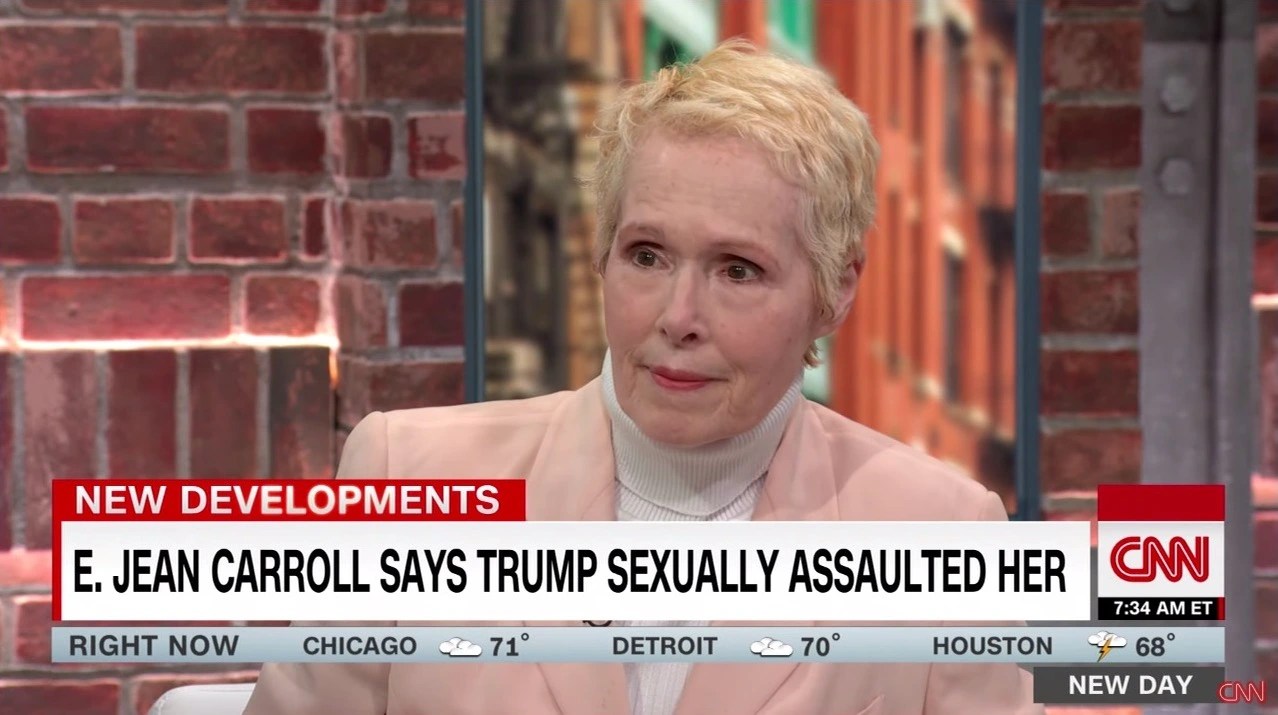At Least a Few of Trump’s #MeToo Accusers Will Finally Get Their Day in Court

Former president, enemy of democracy, and general sleazeball Donald J. Trump is in so much legal trouble these days, it can be hard to keep track. But while we wait for him to be carted off in handcuffs in one case or face grand jury indictment in another, don’t forget that he’s the defendant in a civil rape trial next month too. And things do not seem to be going well for him on that front either.
In another legal loss for Trump, the judge in a civil lawsuit brought by writer E. Jean Carroll decided to allow testimony from two additional women who have accused Trump of sexual assault. The infamous Access Hollywood tape in which Trump bragged about being able to force himself on women also will be allowed into evidence. That means the jury will hear in vivid, disturbing detail what Trump is alleged to have done to three different women, as well as hear him confess to similar acts in his own words on tape.
“There is no reason, and Mr. Trump has made no persuasive argument, for me to rule differently,” Judge Lewis Kaplan wrote.
The two other women who will share their stories under oath are Natasha Stoynoff and Jessica Leeds. Stoynoff has alleged that Trump assaulted her at Mar-a-Lago in 2005, while Leeds has accused him of assaulting her on an airplane in the 1980s. In an opinion issued earlier this month, Judge Kaplan pointed to similarities in the three women’s stories, including the suddenness of the attack, lack of consent, and in two of the cases, a room with a closed door. This is not great news for Trump, since Carroll’s legal team can show a pattern of bad behavior to bolster her claims.
Of course, Trump has denied all of the women’s accusations, calling them liars, which he will unfortunately have a chance to do again at the trial, set to begin April 25. Let’s all hope the jurors in this case have strong stomachs.
These three women are just three of the at least 26(!) women who have come forward to accuse Trump of various sexual misconduct. Carroll first shared her story publicly in 2019 in her memoir, an excerpt of which ran in New York Magazine and is still available to read online. At that time she was unable to pursue legal action for the assault because too much time had passed, so instead, she sued Trump for defamation, a case that is on hold for now after the judge decided not to combine the two lawsuits into one.
Those limitations changed last year when New York passed the Adult Survivors Act, temporarily waiving the deadline for adult survivors of sexual assault to bring lawsuits, allowing members of what’s been called the “silent generation” to pursue some sort of justice. Carroll filed her suit in November once the law went into effect.
According to the complaint, Trump allegedly “forced her up against a dressing room wall, pinned her in place with his shoulder, and raped her.” Carroll told two friends at the time, but like many survivors of sexual assault, she decided against going to the authorities out of fear. “She knew that while a woman who accused any man of rape was rarely believed, a woman who accused a rich, famous, violent man of rape would probably lose everything. She, therefore, concluded that if she accused Donald Trump of rape, he would bury her in threats and lawsuits, and she would probably lose her reputation, not to mention everything she had worked for and achieved,” reads the suit.
Judge Kaplan also ruled this week that jurors will stay anonymous for their protection, staying at undisclosed locations and being escorted by federal marshals to lunch. These precautions, he noted, are usually only taken in criminal cases of terrorism or organized crime. Fitting company, arguably, for our former president.
(featured imaged: screengrab)
Have a tip we should know? tips@themarysue.com